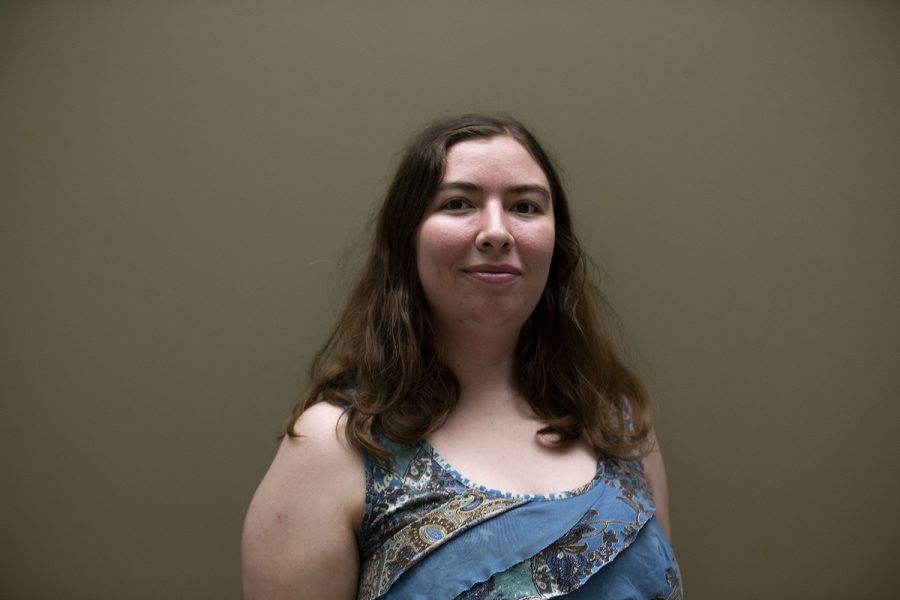UI Fulbright scholar to travel to Sierra Leone to study Ebola aftershocks
Brittany Anderson will use her Fulbright grant to return to Sierra Leone to research the aftermath of Ebola outbreaks.
Fubright scholar Brittany Anderson poses for a portrait on July 19, 2019. Anderson will travel to Sierra Leone to examine how Ebola survivors navigate social, economic, and medical hardships. (Emily Wangen/The Daily Iowan)
July 30, 2019
From 2014-2016, when an Ebola outbreak rocked several countries in Africa and made headlines worldwide, Sierra Leone was one of the hardest-hit places. The devastating effects of the disease made enough of an impression on Brittany Anderson to send her to the country for two summers, and today, she’s awaiting a third trip.
The University of Iowa Ph.D. candidate in anthropology will use a Fulbright award to conduct dissertation work in studying the long-term social and economic effects of the Ebola outbreak.
Anderson was an undergraduate at Luther College when the outbreak hit, and when she did her senior thesis in biology working with anthropology and biology texts centered on Ebola, she found an important piece missing.
“I was reading anthropology, I was reading biology, and I couldn’t find anyone’s voice from the actual countries,” Anderson said. “The actual lived experiences of it were not present.”
The Wisconsin native said this missing information sparked her interest in Sierra Leone and eventually prompted her first two summer visits there. Anderson worked with people who survived Ebola but are past the point of being able to transmit the disease.
In Sierra Leone, Santigie Bayo Dumbuya, the founder and director of the We Yone Child Foundation, said in an email to The Daily Iowan that Anderson was his organization’s longest and most dedicated U.S. volunteer.
“Brittany has a very strong sense of cultural diversity and [is] capable of mixing together while working with different people from different cultures and disciplines,” Dumbuya said in the email.
RELATED: UI Fulbright scholar to start a children’s choir in Brazil
Anderson said Sierra Leone was unique in its quarantine practices, the subject of her first project. In the capital city of Freetown, there were home-by-home quarantines instead of community-based ones. She said home-by-home quarantines bring attention to the afflicted individuals instead of the community, and she wants to study the societal effects of those kinds of decisions.
“It is a country that needs a lot of help, but it’s not one we’re just going to go in and rescue,” Anderson said, in reference to the number of projects set up in Sierra Leone, such as secondary schools, to help bolster the communities.
Anderson’s mentor, UI anthropology Assistant Professor Ted Powers, said his student was fearless when engaging in field research.
“What Brittany’s research tries to help us understand better is how the aftermath of Ebola can be managed productively,” Powers said.
Outbreaks leave stigmas of shame and other social and economic consequences for the afflicted and those associated with them, he said. These social protocols make it difficult to conduct even essential research such as clinical trials and vaccine trials.
Although Sierra Leone is no longer suffers an Ebola outbreak, other African countries including the Democratic Republic of the Congo are experiencing ones.
Powers said Anderson’s research could play an important role in addressing how the global health community can better manage the “long tail” of infectious-disease outbreaks.
“It becomes incredibly difficult to talk openly, to work openly on this issue, and that in turn fuels future disease outbreaks,” Powers said.



